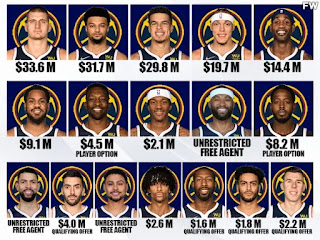Debt Payoff and the Housing Market: Owning Your Dream Without Dragging Debt
The allure of homeownership is strong. That perfect place beckons, promising stability and a slice of the American dream. But for many, a mountain of debt stands between them and that dream. Here's the thing: debt payoff and the housing market are intricately linked. Let's explore how focusing on one can pave the way for the other.
Why Debt Can Derail Your Homeownership Dreams
- Debt-to-Income Ratio (DTI): Lenders use DTI to assess your ability to repay a mortgage. High debt obligations (student loans, credit cards, etc.) inflate your DTI, making you a less attractive borrower and potentially disqualifying you for favorable mortgage rates.
- Credit Score: Debt management significantly impacts your credit score. Lenders rely on a good score (typically above 670) to offer competitive rates and loan terms. High debt levels and missed payments can significantly lower your score, making homeownership more expensive.
- Emergency Fund: Unexpected expenses are a reality. A leaky roof or a major appliance breakdown can derail your down payment savings if you're juggling debt payments. A healthy emergency fund acts as a safety net, ensuring your homeownership journey stays on track.
Prioritizing Debt Payoff: Why It's Worth the Effort
Conquering debt unlocks several benefits that make buying a home a smarter and more sustainable decision:
- Improved DTI: Reducing your debt lowers your DTI, making you a more desirable borrower in the eyes of lenders.
- Boosted Credit Score: Consistent debt payments and reduced credit utilization (the amount of credit used compared to your limit) significantly improve your credit score, leading to better mortgage rates and terms.
- Financial Freedom: Debt freedom frees up monthly income. This allows you to allocate more funds towards a down payment and save for additional housing costs like closing fees and property taxes.
Crafting a Debt Payoff and Homeownership Strategy
Here are some actionable steps to tackle your debt and navigate the housing market:
- Identify Your Debt: List all your debts (credit cards, personal loans, etc.), including the interest rates and minimum payments.
- Choose a Debt Repayment Strategy: Popular options include the snowball method (paying off the smallest debts first) or the avalanche method (targeting debts with the highest interest rates first). There's no one-size-fits-all approach; choose the one that motivates you.
- Create a Budget: Track your income and expenses. Identify areas to cut back and allocate those savings towards debt payments. Many helpful budgeting apps and online tools are available.
- Consider a Debt Consolidation Loan: If you have high-interest debt scattered across various accounts, consolidating it into a single loan with a lower interest rate can simplify your repayment process and potentially save you money.
- Seek Expert Advice: Don't hesitate to consult a credit counselor or financial advisor. They can provide personalized guidance and connect you with resources to achieve your financial goals.
Remember: Debt payoff is a marathon, not a sprint. Celebrate milestones and stay motivated. There's a light at the end of the tunnel: owning your dream home with a solid financial foundation.
Ready to take the first step? Consider utilizing free resources offered by the National Foundation for Credit Counseling or contacting a local credit union for personalized guidance.
Owning your dream home shouldn't come with a financial burden. By prioritizing debt payoff, you'll be well on your way to achieving sustainable homeownership.









Comments
Post a Comment